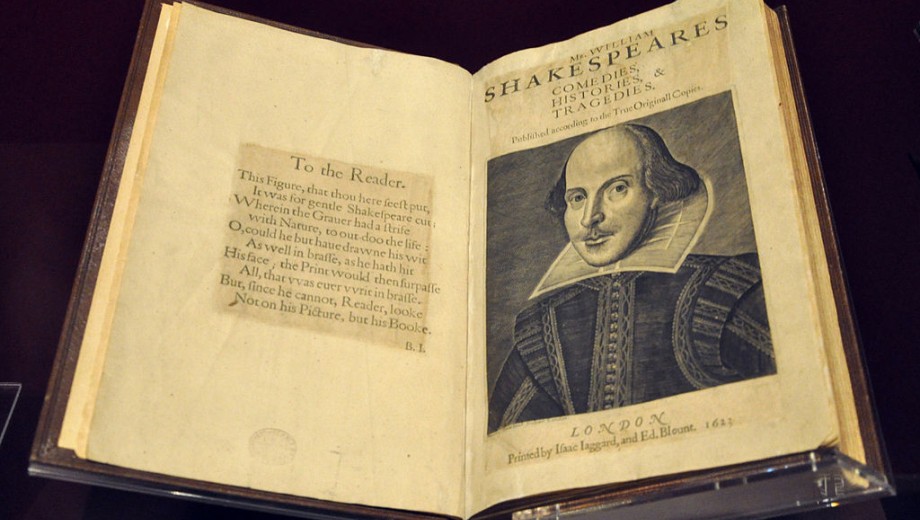When Tableau interviewed Laura Bates, PhD’98, about teaching in prison, her mentor David Bevington, Phyllis Fay Horton Distinguished Service Professor in the Humanities, added his perspective.
Bates and her husband, Allan Bates, AM’55, PhD’68, who has also spent many years volunteering in prisons, were staying with the Bevingtons while visiting Chicago over the holidays. Bevington graciously agreed to host an interview in his home on New Year’s Day.
During the discussion, Laura Bates maintained that Shakespeare’s work held a special appeal for prisoners. Bevington, a world-renowned Shakespeare scholar, took an unexpectedly contrarian view.
Tableau: Would other works of famous literature appeal to a prison population?
David Bevington: You’d never get anywhere with Paradise Lost. Or Chaucer. I can’t imagine what you would do with Chaucer, though there are some very funny tales. “The Miller’s Tale.” You’d have to throw away the text and use a translation, because the language [Middle English] is just—
Laura Bates: At the other extreme, to go with a contemporary text would work even less successfully, because you wouldn’t have that sense of accomplishment.
Bevington: I wouldn’t want to agree with that. I could see lots of possibilities. Take James Dickey’s Deliverance. A very violent tale.
Bates: You know what they read on their own is contemporary, very violent, true crime stuff.
Bevington: That’s not literary. What could you get from doing a literary text, like, say, Dickey? It’s very violent and very distressing and full of very ugly unresolved racist issues.
Bates: But the key is, will that experience ultimately leave them with a humanizing effect? That’s the worst kind of media coverage that we’ve gotten. We would have these one-minute, 30-second TV clips. And they would always focus on how these prisoners were acting out, having a good time, enjoying pretending to kill people again.
Bevington: Take another example, [Ken Kesey’s] One Flew Over the Cuckoo’s Nest, about a mental institution. It’s just a fantastic piece really, both the film and the book. It seems to me the humanizing effect is there, and it’s dealing with violence. I’m sure that prisoners would identify with that.
Tableau: Does the elite status of Shakespeare make a difference? Being able to tell your mother you’re reading Shakespeare?
Bates: I think having that exposure to Shakespeare stays with you. Shakespeare sticks with you in a way that, I still would argue, a contemporary work of literature might not. That’s my guess. (To Bevington) We’re going to have to arm wrestle on that one.
Bevington: It’s true that people aren’t going to be impressed with the name James Dickey. It’s not as impressive in that iconic sense. But ideally you can get a very deep reading experience, and in some ways a more available one.
Bates: I’ll throw out another argument. Shakespeare has, what, 37, 38, what’s the latest count? I’ve had so many people say I’ve read this one with you and now I’m seeking out more on my own. One of the guys telephoned me after he was out and said, “I’m taking my wife to go see a Shakespeare play now. I want to introduce her to Shakespeare.”
Bevington: All right, but you could say Faulkner. There’s plenty of Faulkner. Or various authors. It doesn’t have to be all one person.
Allan Bates: Even more than being able to tell their mother that they’re reading Shakespeare, they’re proud to be able to tell their daughter.
Laura Bates: Yeah, a lot of them have kids.



Comments
Face it, the choice of
Face it, the choice of authors is not up to the instructors or the inmates, it's up to the prison officials. Shakespeare sounds serious, prestigious, innocuous, academic, cultured. That's why the warden allows it, it makes him/her look good, enlightened ... and the media eat it up. Whatever motivations the instructors and the inmates have, subconscious or otherwise, is really secondary to the motivations of prison officials.
Hypocrites and Canada hockey
As someone encouraged to take some risks of elopement, in the caution that Congressional hearings are never fit until identified as an open door of gloomy European academica, and its prisons, i am not sure if Harvard ever paid due forward motions to Shakespeare. Usually one sees Shakespeare as backwards, lamenting the classical destruction of a country, and prone to obscenity of the mind. What on earth would a medievalist skeptical of the Greco-Roman tradition in the Carolingian legacy do, when faced with the judgement that modern politics is textual, as Cixous once said to theatre critics, while artifacts often hypocritical. Would Hyperion press then give up making textbooks; or does early travel to Cyprus and Greece prevent such ungainly disasters prone to believing that Germany can function fairly without hypocrisy and the Austrian conslegislature, as Greece in functional life and formal consent may have acknowledged. Hypocrisy is so 1944. Someone turned around and spied the hypocrite.
Add new comment